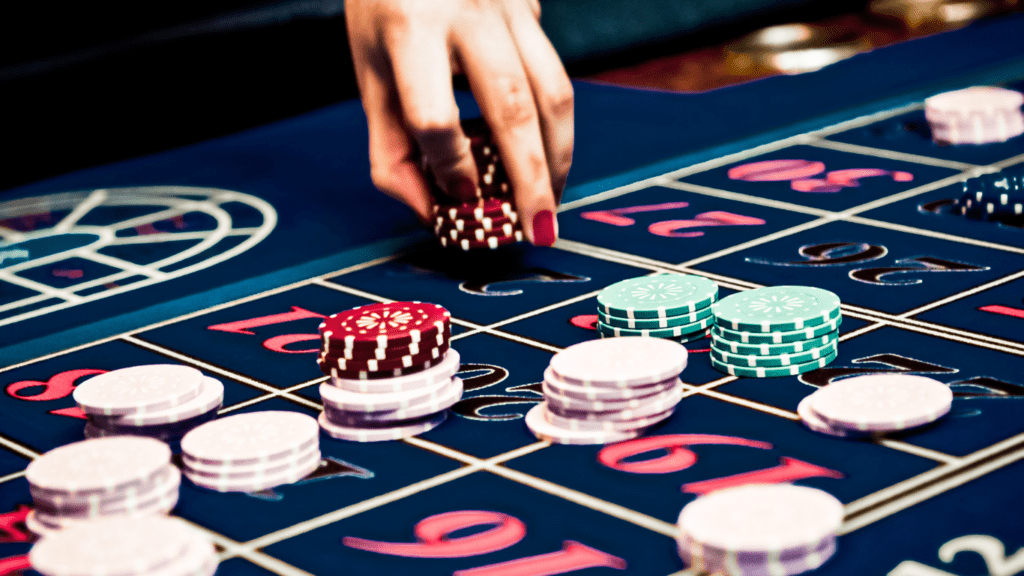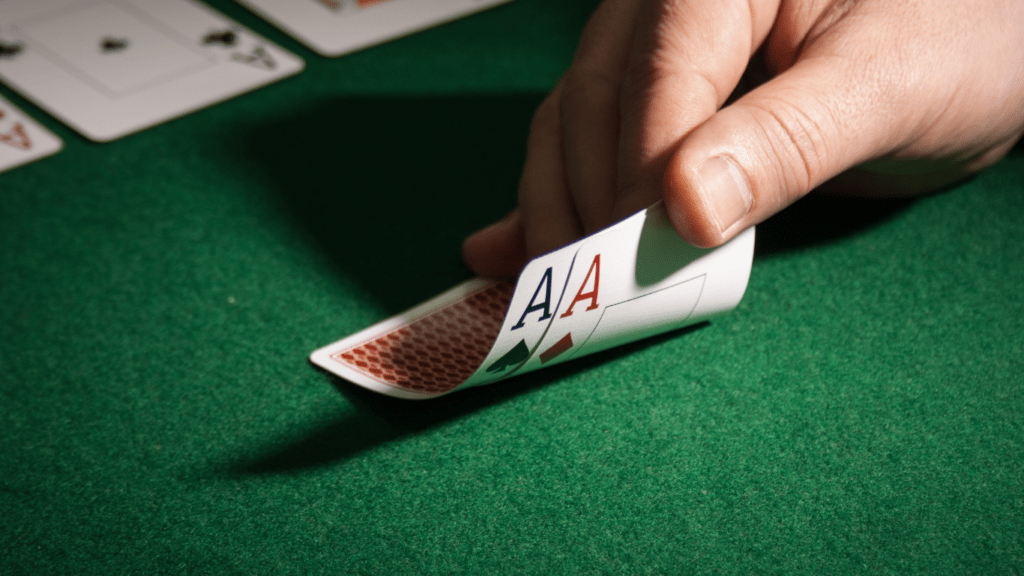Have you ever felt that a streak of losses means a win is just around the corner? In the world of gambling, this belief is known as the Gambler’s Fallacy. As I delve into the intricacies of this cognitive bias, you’ll discover how it influences your betting choices more than you might realize.
When faced with the Gambler’s Fallacy, our minds tend to seek patterns in randomness, leading us to make decisions based on false assumptions. Through my exploration of this phenomenon, you’ll gain valuable insights into how misconceptions can impact your gambling strategies and outcomes.
Join me on a journey through the psychology behind the Gambler’s Fallacy, and let’s uncover the ways in which our perceptions can shape the risks we take in the world of betting.
Understanding the Gambler’s Fallacy
Exploring the Gambler’s Fallacy reveals how our minds can trick us into believing that past outcomes influence future results. It’s important to grasp that each game of chance is independent of previous events. Understanding this key concept can help improve decision-making in betting scenarios.
Influence of Misconceptions on Betting Choices
When it comes to betting choices, misconceptions can significantly impact our decisions. Let’s delve into how cognitive biases and probabilistic thinking errors play a crucial role in shaping our gambling strategies.
Cognitive Biases in Gambling
In the realm of gambling, cognitive biases can cloud our judgment and lead us astray. These biases influence how we interpret information and make decisions, often based on faulty reasoning rather than objective analysis.
Recognizing and mitigating these biases is essential for making informed and rational betting choices.
Probabilistic Thinking Errors
Probabilistic thinking errors can distort our perception of chances and outcomes in gambling. From the Gambler’s Fallacy to overestimating probabilities, these errors can misguide us into making poor betting choices.
Understanding the pitfalls of probabilistic thinking is key to enhancing our decision-making skills and avoiding common pitfalls in the world of gambling.
Real-life Examples of the Gambler’s Fallacy
Exploring real-life scenarios where the Gambler’s Fallacy manifests itself can provide concrete illustrations of how this cognitive bias impacts betting choices. Understanding these examples can help individuals recognize similar patterns in their own gambling behavior and make more informed decisions:
- Coin Flips: In a series of coin flips, the Gambler’s Fallacy may lead someone to believe that if heads have appeared multiple times in a row, tails are “due” to come up next. This misconception disregards the fact that each coin flip is independent and the probability of getting heads or tails remains 50% on every toss.
- Lottery Numbers: When choosing lottery numbers, individuals may avoid selecting a sequence that has recently won, assuming that those numbers are unlikely to win again soon. This fallacy overlooks the randomness of lottery draws, where each number combination has an equal chance of being drawn regardless of previous outcomes.
- Sports Betting: In sports betting, a person might bet on a team to win a game based on the belief that the team is “bound to win” after a series of losses. This erroneous reasoning neglects the variability of athletic performance and the influence of numerous factors on the outcome of each match.
- Casino Games: In games like roulette, players may bet on a specific color after observing a streak of the opposite color winning several times in a row. The Gambler’s Fallacy leads them to think that the trend will reverse soon, failing to acknowledge that each spin of the roulette wheel is an independent event with its own set of probabilities.
Examining these real-life instances of the Gambler’s Fallacy underscores the importance of recognizing the fallacy’s influence on decision-making in various betting scenarios. By understanding the pitfalls of relying on past outcomes to predict future results, individuals can approach gambling with a clearer perspective and improve their overall betting strategies.
Strategies to Overcome the Gambler’s Fallacy
Exploring practical methods to combat the Gambler’s Fallacy can significantly enhance your decision-making in betting scenarios. Here are some effective strategies to help you overcome this cognitive bias:
- Understand Probabilities: Educating myself on the concept of probabilities and embracing the idea that each event is independent can counter the Gambler’s Fallacy. By recognizing that past outcomes do not influence future results, I can make more rational betting decisions.
- Set Clear Betting Limits: Establishing clear and specific betting limits before engaging in any gambling activity can prevent impulsive decisions driven by the Gambler’s Fallacy. By sticking to pre-defined limits, I maintain control over my betting behavior and avoid falling into the trap of flawed reasoning.
- Utilize Rational Decision-Making: Engaging in rational decision-making processes, based on objective analysis rather than emotional impulses, is crucial for overcoming cognitive biases like the Gambler’s Fallacy. By relying on logic and reason, I can make more informed and strategic bets.
- Seek Diversification: Diversifying my betting portfolio across different games or events can help me avoid fixating on past outcomes and seeking patterns where none exist. By spreading my bets, I reduce the likelihood of succumbing to the Gambler’s Fallacy’s influence and improve my overall betting strategy.
- Consult with Experts: Seeking advice from knowledgeable sources or experts in the field of gambling can provide valuable insights and perspectives that challenge misconceptions like the Gambler’s Fallacy. By leveraging the expertise of others, I can refine my betting strategies and make more sound decisions.
By implementing these strategies, I can effectively combat the Gambler’s Fallacy and enhance my betting choices with a more rational and informed approach.



 Josephers Franklinster
Founder & Chief Strategist
Josephers Franklinster is the founder and driving force behind Pro Gamble Genius. With over a decade of hands-on experience in the gambling world, Josephers has cultivated a unique perspective that merges industry knowledge with an intuitive understanding of gambling psychology. His expertise spans across casino operations, advanced poker strategies, and the emerging fields of cryptocurrency betting. Passionate about empowering others, Josephers established Pro Gamble Genius as a platform where gambling enthusiasts of all levels can access trustworthy insights and actionable advice. His commitment to delivering in-depth analysis and strategic foresight has helped shape the platform into a comprehensive resource for anyone looking to make informed decisions in the ever-evolving landscape of gambling. Known for his innovative thinking and strategic vision, Josephers is continually exploring new ways to enhance the platform and serve its audience.
Josephers Franklinster
Founder & Chief Strategist
Josephers Franklinster is the founder and driving force behind Pro Gamble Genius. With over a decade of hands-on experience in the gambling world, Josephers has cultivated a unique perspective that merges industry knowledge with an intuitive understanding of gambling psychology. His expertise spans across casino operations, advanced poker strategies, and the emerging fields of cryptocurrency betting. Passionate about empowering others, Josephers established Pro Gamble Genius as a platform where gambling enthusiasts of all levels can access trustworthy insights and actionable advice. His commitment to delivering in-depth analysis and strategic foresight has helped shape the platform into a comprehensive resource for anyone looking to make informed decisions in the ever-evolving landscape of gambling. Known for his innovative thinking and strategic vision, Josephers is continually exploring new ways to enhance the platform and serve its audience.
